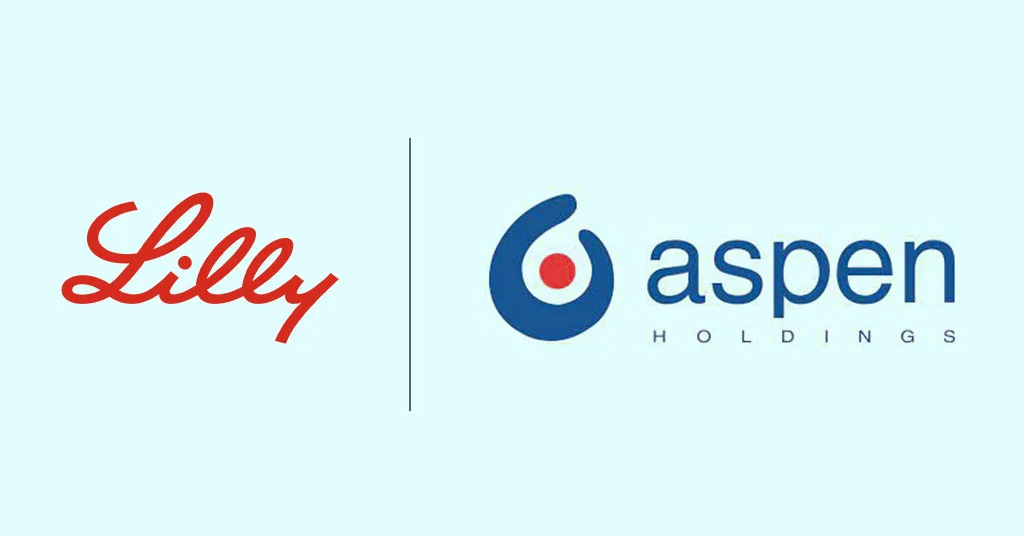Welcome To ChemAnalyst

Aspen Pharmacare, the largest pharmaceutical company in Africa, has forged a partnership with Eli Lilly, a prominent pharmaceutical powerhouse based in the United States. The essence of this collaboration is to facilitate the distribution of Eli Lilly's pharmaceutical products not only in South Africa but also across the expansive sub-Saharan African region.
According to a joint statement issued by both companies, the sales revenue generated by Eli Lilly's product portfolio in sub-Saharan Africa amounted to approximately $23 million in the year 2022. Aspen Pharmacare anticipates a substantial increase in sales revenue in the short to medium term, primarily driven by the introduction of key pharmaceutical products from Eli Lilly's development pipeline.
This significant agreement is slated to span a decade and comes with an automatic renewal clause for two additional five-year periods. However, the finalization of this transaction is contingent upon the receipt of regulatory approvals. The expected commencement date for this partnership is set for the conclusion of the first quarter of 2024.
Stephen Saad, the Chief Executive of the Aspen Group, expressed admiration for Eli Lilly's impressive pharmaceutical portfolio and their robust pipeline of new drugs. He specifically mentioned Mounjaro, Eli Lilly's groundbreaking diabetes medication, which has witnessed a surge in demand. The success of Mounjaro has led to a remarkable uptick in Eli Lilly's stock value, prompting the company to revise its annual sales projections upward.
This notable performance has also propelled Eli Lilly to the forefront of the global healthcare industry, positioning it as a potential leader in terms of market capitalization. Cesar Buendia, the General Manager for Lilly in South Africa and sub-Saharan Africa, emphasized that the partnership with Aspen opens up new avenues for expanding access to Eli Lilly's pharmaceutical offerings throughout the African continent.
Mr. Buendia emphasized Eli Lilly's unwavering commitment to delivering groundbreaking medical innovations to patients not only in South Africa but across sub-Saharan Africa as well.
In addition to this pivotal agreement, Aspen Pharmacare disclosed that it has secured three sterile manufacturing agreements with multinational pharmaceutical firms. These agreements involve production activities at Aspen's manufacturing facility located in France. However, the specific names of the multinational partners and further details were not disclosed in the statement. The company did, however, indicate that more similar agreements are in the pipeline.
These newly forged partnerships, along with a similar arrangement inked with the Serum Institute of India in the previous year, will leverage the idle manufacturing capacity in South Africa and France. This capacity was initially built at a cost of $540 million, with the expectation of high demand for COVID-19 vaccines. However, with the pandemic subsiding, the demand for sterile products, including intravenous injections, has decreased significantly, leaving Aspen with substantial idle capacity and associated losses.
The agreements with these pharmaceutical partners represent a strategic move to optimize the utilization of these facilities and ensure their productive use. By doing so, Aspen aims to revitalize its manufacturing operations and mitigate the challenges posed by underutilized capacity, ultimately enhancing its competitiveness in the pharmaceutical industry.
In conclusion, the partnership between Aspen Pharmacare and Eli Lilly heralds a significant development in the pharmaceutical landscape of South Africa and sub-Saharan Africa. The collaboration promises to bring forth an array of innovative pharmaceutical products to meet the healthcare needs of the region. Additionally, Aspen's strategic manufacturing agreements with undisclosed multinational pharmaceutical companies reflect its commitment to optimizing production capacity and adapting to evolving market dynamics. These initiatives collectively position Aspen for future growth and resilience in an ever-changing pharmaceutical environment.
We use cookies to deliver the best possible experience on our website. To learn more, visit our Privacy Policy. By continuing to use this site or by closing this box, you consent to our use of cookies. More info.
